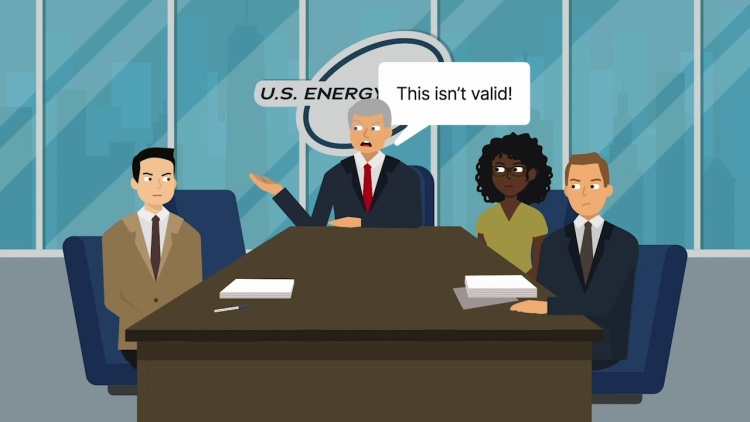Fogel v. U.S. Energy Systems, Inc.
Delaware Court of Chancery
2007 WL 4438978 (2007)

- Written by Sean Carroll, JD
Facts
U.S. Energy Systems, Inc. (U.S. Energy) (defendant) had four directors: Fogel, Feinstein, Strauss, and Schneider. Fogel (plaintiff) was the CEO and chairman. The board of directors scheduled a board meeting for June 29, 2007, to interview candidates to oversee the corporation’s problematic operations in the United Kingdom. Prior to the meeting, Feinstein, Strauss, and Schneider met and agreed that Fogel should be fired. At the June 29 meeting, they informally asked Fogel to resign and told him he would be fired if he did not. A vote was not taken. That night, after Fogel declined to resign, Feinstein—with the support of Strauss and Schneider—fired Fogel. On July 1, Fogel called a special meeting of U.S. Energy’s stockholders for the purpose of voting for removal of Feinstein, Strauss, and Schneider as directors. Later on July 1, at a regularly scheduled meeting of the board, Feinstein, Strauss, and Schneider passed a formal resolution firing Fogel. Feinstein, Strauss, and Schneider then ignored Fogel’s call for a special meeting. Fogel brought suit in the Delaware Court of Chancery, seeking a judgment declaring that he was not fired until the board’s formal resolution on July 1, and therefore his calling of a special meeting was valid and the meeting should be held.
Rule of Law
Issue
Holding and Reasoning (Chandler, J.)
What to do next…
Here's why 907,000 law students have relied on our case briefs:
- Written by law professors and practitioners, not other law students. 47,100 briefs, keyed to 996 casebooks. Top-notch customer support.
- The right amount of information, includes the facts, issues, rule of law, holding and reasoning, and any concurrences and dissents.
- Access in your classes, works on your mobile and tablet. Massive library of related video lessons and high quality multiple-choice questions.
- Easy to use, uniform format for every case brief. Written in plain English, not in legalese. Our briefs summarize and simplify; they don’t just repeat the court’s language.





